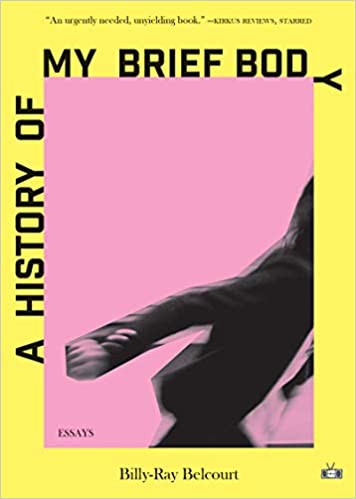Alex Cabe reviewed History of My Brief Body by Billy-Ray Belcourt
Beautifully Written, Requires Close Reading
4 stars
What struck me most was that I had to read this in a different way than I ordinarily read. Ordinarily reading for me is relaxing, flowing and almost dissociative, here I felt like I had to engage my full attention and engage carefully with each sentence. I had to go slow, frequently re-read, and look up concepts, as if I were back in college.
I read this way because the sentences were very dense. Belcourt is a poet who writes like a poet, and he shows an admirable trust in his readers to pick up oblique, multilayered concepts without a lot of hand-holding. I'm not sure what it means that the book was most direct when talking about sex. The most difficult part to me was teasing out what was uniquely NDN and what was just the general human experience.
The major theme was joy and utopia as a reaction to and rejection of oppression, while at the same time seeming to quietly acknowledge that utopia (which after all means "nowhere") wasn't really reachable. I feel like this is in the same neighborhoold as Camus-like absurdism, but I need time and thought to really put them together.
Where I hesitate with this is an issue less an issue with the book, and more an issue with the whole theoretical enterprise. The conclusions are deeply considered and beautifully argued, but if someone came to the opposite conclusion, how would we decide the truth? Belcourt talks about the Colten Boushie case in Saskatchewan, and the way he sees it as an injustice, but doesn't talk about what happened afterwards. Boushie's family successfully lobbied for major changes to the jury system. Is that meaningful to Belcourt, or is it just "liberal empathy" or rearranging deck chairs? I can guess, but I don't know for sure what he'd say. I understand it's not his job or his intention in writing this, but it butts up at against the limitations of the chosen form.

